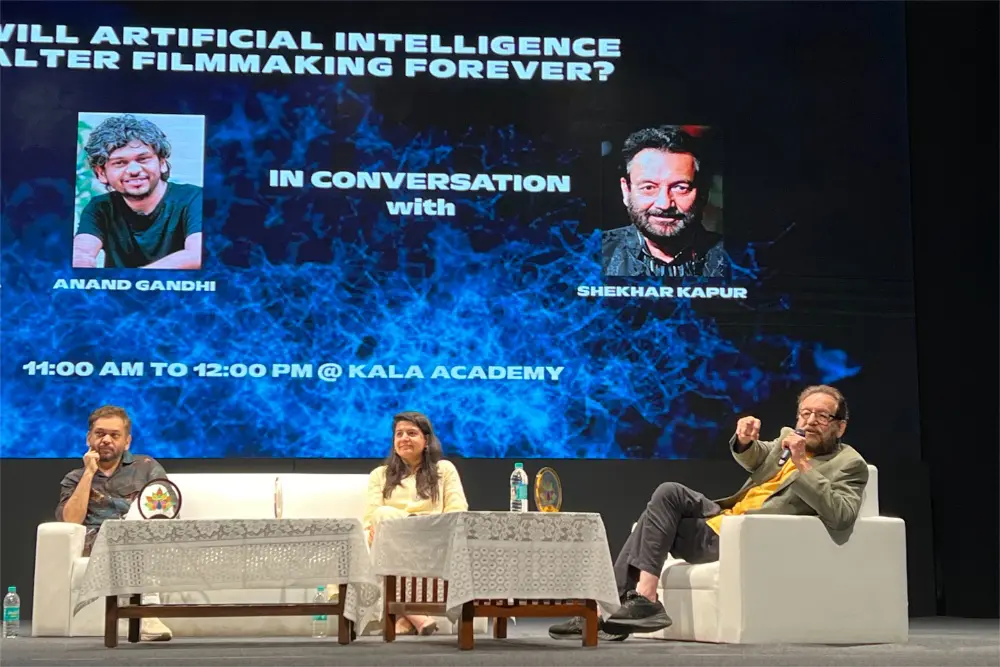The democratizing potential and creative implications of artificial intelligence took center stage during a panel discussion at the International Film Festival of India (IFFI) in Goa, with filmmaker Shekhar Kapur, who serves as festival director, “Ship of Theseus” director Anand Gandhi and OpenAI‘s Pragya Misra exploring AI‘s impact on filmmaking.
Kapur said that AI recently helped generate the best plot outline he had received for a potential “Mr. India” sequel. “ChatGPT actually gave me the best plot for ‘Mr. India 2,’ better than most of the big name, well-paid writers,” said Kapur, who directed the 1987 original.
Misra demonstrated OpenAI’s text-to-video model Sora, which within seconds can generate minute-long videos from text prompts. While not yet publicly available, the tool is being tested with selected filmmakers. “What you’re going to see today is probably the worst version of the model you’re ever going to see. We’re only going to get better and more intelligent,” Misra said.
Gandhi addressed concerns about AI’s impact on human creativity, noting that AI will increasingly become a “co-author, co-pilot” in creating culture. “We are at the precipice of something massive, unprecedented,” said Gandhi.
Popular on Variety The panel discussed AI’s democratizing effect, with Kapur arguing it could level creative playing fields. He illustrated this with an anecdote about a cleaning lady who used AI to improve a CEO’s presentation, suggesting that AI could disrupt traditional hierarchies.
However, Kapur emphasized AI’s limitations: “AI cannot feel fear. It cannot feel love… AI is about certainty. It’s not about uncertainty.”
The discussion also addressed concerns about AI potentially perpetuating stereotypes, with Misra noting that OpenAI is working to address ethnic and cultural biases before Sora’s public release.
Kapur is currently working on “Masoom: The Next Generation,” where he uses AI as a sparring partner for story development, while maintaining that “AI has a long way to catch up with human imagination.”
The session underscored both the transformative potential and limitations of AI in filmmaking, with the panelists agreeing that while AI will become an increasingly important tool, human creativity and emotion remain central to storytelling.

 Italian
Italian







